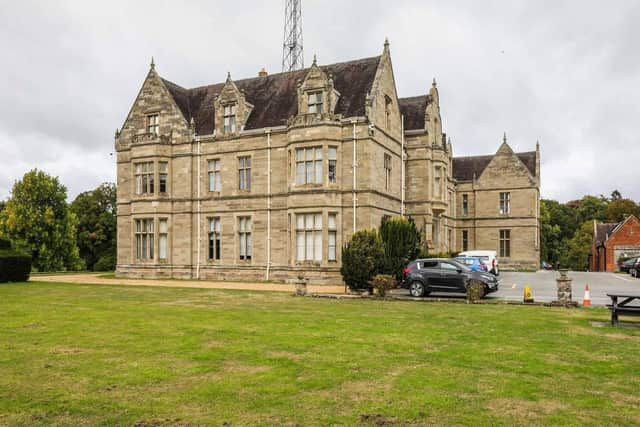'Identical' push for housing near Warwickshire Police HQ rejected with planning inquiry looming
and live on Freeview channel 276
The latest push to build 83 homes next to Warwickshire Police’s headquarters in Leek Wootton was resisted by councillors this week as Warwick District Council prepares for a legal battle over the plans.
The proposed development at Woodcote Lane, Leek Wootton, is set to go to a planning inquiry, the most formal procedure by which planning appeals are decided, despite an attempt by applicants Cala Homes to gain permission through a second application that was described as "identical" in the council's report.


Advertisement
Hide AdAdvertisement
Hide AdIt was refused unanimously by the council’s planning committee on Wednesday after the discussion was taken behind closed doors for more than half an hour.
The committee moved into private session because the conversation also related to the position that the council could take during the upcoming inquiry, something that councillors agreed should not be discussed in public at this stage.
Cala exercised the right to launch an appeal over its 2022 application because the council did not make a decision within 13 weeks. It meant the only call councillors could make on that one was whether or not to get the authority to contest the appeal.
Planning officers, the professionals employed by the council to decide minor applications and make recommendations to councillors on large or contentious proposals, initially recommended refusal if certain concerns could not be addressed in good time prior to the inquiry, which was initially scheduled to take place in July.
Advertisement
Hide AdAdvertisement
Hide AdHowever, Cala came back with amendments under a legal precedent known as the Wheatcroft principle.
An access track that serves neighbouring East Lodge is no longer proposed to be used by vehicles, leaving a single access point off Woodcote Lane. An indicative parameters plan has also been removed.
Because this is an outline application, detailed proposals still have to come forward for a separate decision and cannot be considered yet, and with the amendments addressing the concerns of consultees such as Warwickshire County Council’s highways departments, planning officers shifted towards recommending backing for the ‘in-principle’ permission.
That recommendation was repeated for this latest application, which was submitted by Cala in July this year. It gave the council the opportunity to grant permission without going through the inquiry, but, as was the case in September, councillors were unmoved.
Advertisement
Hide AdAdvertisement
Hide AdIn September, councillors advocated refusal based on the impact of the position, nature and scale of the housing in relation to the Grade II-listed Woodcote House and its garden, arguing that the public benefits of the proposed housing would not outweigh the harm.
Concern was also noted at that point over the proposals being unable to deliver a net gain in biodiversity.
Planning policies allow for offsetting to take place, meaning developers can make up for any loss of biodiversity elsewhere, but councillors noted that they wanted to see this matter addressed at the site and the will to introduce that as a reason for refusal this time, rather than just noting the issue, prompted the debate being taken behind closed doors.
Councillor Lowell Williams (Green, Kenilworth Park Hill), who instigated the biodiversity argument in September, said: “I think it is something the committee should bring in and it has a bearing on the inquiry which is about to take place.
Advertisement
Hide AdAdvertisement
Hide Ad“The council’s position on that inquiry is not one for public debate. If we are going to debate the inclusion of that reason then there are comments that I would like to make that would relate to the inquiry and should not be made in public.”
Following the behind-closed-doors section, monitoring officer Graham Leach, whose role is to ensure the lawfulness and fairness of decision making, delivered the wording of what councillors had agreed with officers.
It reflected the wish to refuse the application “on the grounds of harm to the setting of the Grade II-listed building and locally listed park” with “no public benefits to outweigh this harm” as well as conflicting with local plan policies that “imposes a stricter test for development proposals on this particular site”.
It was also deemed that “the proposal cannot deliver biodiversity on site” in line with planning policies.